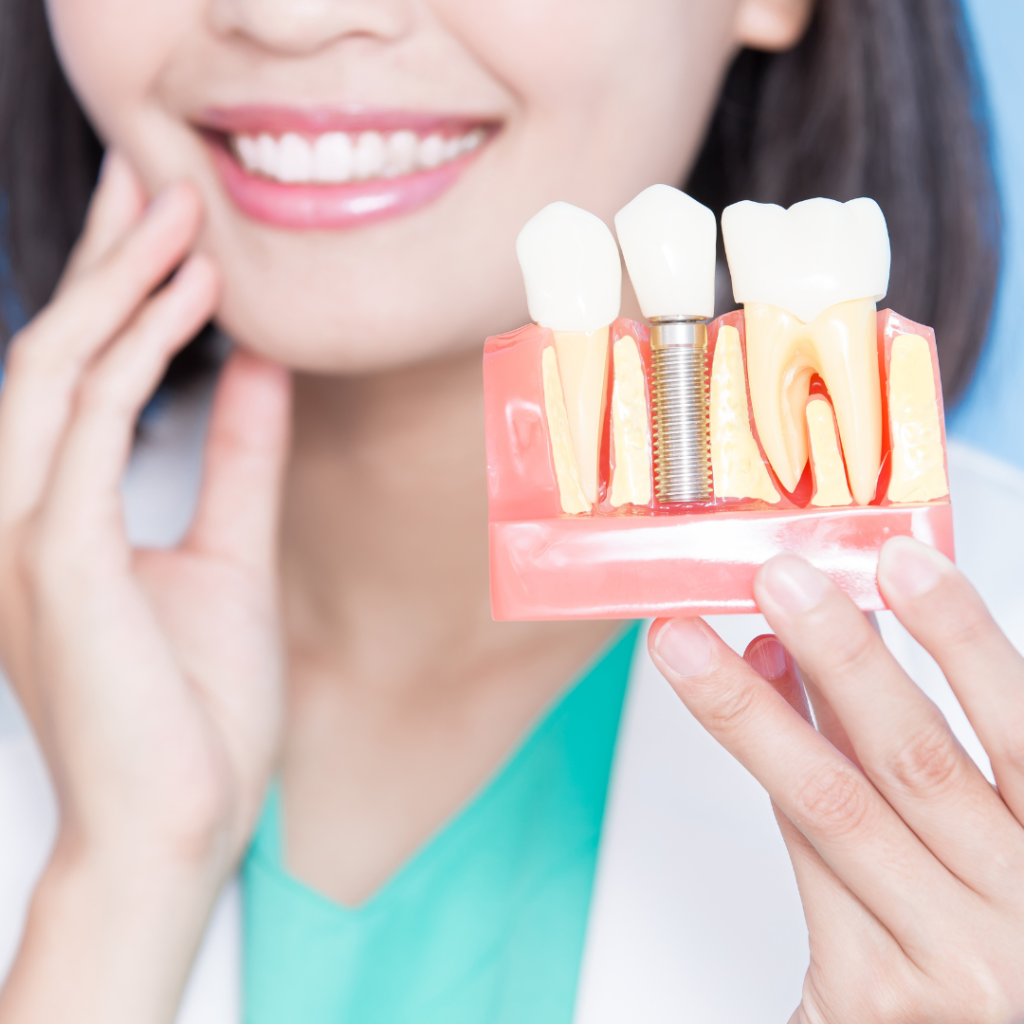Receding gums: causes, consequences and effective treatment at Astra Dent Warsaw
Gum recession is a localized loss of attached gum tissue, which leads to the exposure of dentin (the base of the tooth). It is accompanied by increased sensitivity to hot, cold or acidic foods, as well as unpleasant sensations when brushing your teeth. Among the causes are smoking, chronic periodontitis, orthodontic structures, thin gum biotype, traumatic oral hygiene. In advanced cases, alveolar bone resorption is observed, which threatens tooth loss.
Timely consultation with a dentist allows to stop tissue loss through professional hygiene. For deep defects, microsurgical techniques are used – gum transplantation, laser root treatment, curettage. Astra Dent specialists perform treatment in accordance with the principles of evidence-based medicine, using coronary gingival flap displacement, tunnel technique, autogenous or collagen grafts.
Why choose Astra Dent Warsaw for the treatment of receding gums?
The success of treatment depends on accurate diagnosis and quality of dental care. Gum restoration at Astra Dent is performed delicately and with minimal intervention:
- Experienced periodontists. Treatment is carried out by narrow-profile specialists with over 10 years of clinical experience. Each case is analyzed taking into account anatomy, gum biotype, recession index and bone condition.
- Modern pain-free treatment methods. Lasers are used to treat root surfaces, micro-instruments for atraumatic interventions, biomaterials with high biocompatibility. Local anesthesia, the intensity of unpleasant sensations after the procedures is minimal.
- The possibility of restoring the aesthetics of the smile. In case of recession in the smile area, coronal flap displacement techniques and tunnel methods with tissue grafting are used. This approach allows us to cover exposed areas and restore symmetry of the gingival contour.
- Affordable prices and comfortable treatment conditions. The cost is formed immediately after consultation and diagnosis. The procedures are performed in a modern dental office with a microscope, scanner and digital planning of the intervention.
All procedures are performed in accordance with the standards of the European Academy of Aesthetic Dentistry. After treatment, the patient receives individual recommendations for the prevention of recurrent pathology, as well as control visits to assess the stability of the result.
Why do gums recede?
Gum recession is a signal of serious changes in the periodontium. Almost every second adult has certain signs of gum recession, which threaten loosening and loss of teeth. The causes of pathological changes are diverse:
- Improper tooth brushing technique. Using hard brushes or intensive tooth brushing leads to gum injury. This causes tissue detachment from the dentin, which ultimately leads to recession.
- Periodontitis and other gum diseases. Periodontitis is a chronic inflammation that over time destroys not only the gums, but also the bone structure. If the problem is ignored, the pathology progresses and causes significant gum loss.
- Genetic predisposition. Some people have a tendency to thinner gums or genetic disorders in the regeneration processes, which can lead to recession without obvious external causes.
- Age-related changes. Over time, gum tissue naturally wears out and becomes thinner, which increases the likelihood of recession. The process can be accelerated by other factors – poor hygiene, chronic diseases, hypovitaminosis.
- Smoking and bad habits. One of the main reasons for the deterioration of the gums is smoking. Nicotine reduces the blood supply to the tissues, which prevents their recovery after injuries and contributes to the development of periodontal diseases.
The approach to treatment depends on the causes of the dental disease. And the sooner you see a dentist, the sooner you can stop gum recession.
What are the consequences of the gum recession?
If dental disease is not treated at an early stage, serious complications arise that require surgical intervention. The loss of tissue around the teeth threatens the general condition of the periodontium.
Consequences of gum recession:
- Exposing the roots of the teeth. When the gums recede, the root of the tooth is exposed, which is more vulnerable to external influences due to the lack of enamel. Exposing the root leads to deep caries in this area.
- Increased sensitivity to cold, hot, and acidic. Without gum protection, the root of the tooth becomes more sensitive to temperature changes and chemical irritants. Patients may experience pain when consuming hot or cold drinks or foods with a high acid content.
- Increased risk of root caries. Usually, there is no enamel on the root of the tooth that protects against bacteria, so microorganisms easily penetrate the pores and damage the dentin. This leads to severe caries and even tooth loss.
- Deterioration of the aesthetics of the smile. Receding gums change the appearance of the smile. The teeth appear longer, and the contours of the gums become uneven and asymmetrical. This worsens the appearance, which causes psychological discomfort in patients.
- Risk of tooth loss. When recession progresses, there is a loss of not only gum tissue, but also the alveolar bone that supports the tooth. As a result, it becomes mobile and can fall out.
Astra Dent uses modern diagnostic and treatment methods that stop gum recession and restore tissue, which reduces the risk of carious dentin impaction.
How do we treat gum recession at Astra Dent Warsaw?
Each Astra Dent patient receives an individual treatment plan developed taking into account their needs. All procedures are performed in sterile conditions using the latest technologies and equipment of 2023.
Conservative treatment
In the early stages, recession can be controlled using conservative methods. They stop the progression of the disease and reduce the risk of serious complications:
- Selecting the correct teeth brushing technique. Astra Dent dentists teach the correct way to brush your teeth so as not to injure the gums. Special techniques are used to prevent excessive pressure and tissue detachment from the dentin.
- Using soft brushes and special pastes. Hard bristles worsen the condition of the gums, so soft brushes are recommended that reduce mechanical impact. For gum care, pastes with calcium and fluoride are prescribed, which help strengthen tooth enamel and maintain tissue health.
- Enamel remineralization to reduce sensitivity. Root exposure is often accompanied by increased tooth sensitivity. To reduce discomfort, enamel remineralization is performed using special products that restore the structure. Gels with phosphates and fluoride are used, which can reduce discomfort when eating cold or hot food.
Conservative treatment is an important stage in maintaining the health of the gums and teeth. Proper hygiene and the use of appropriate products improves the general condition of the periodontium and prevents associated dental problems.
Surgical treatment
If conservative treatment does not give results, surgical methods are used:
- Gingivoplasty – covering exposed roots. During the procedure, the method of coronal displacement of the gingival flap is used, in which the tissue is moved to the site of recession. As a result, the normal shape of the gums is restored and the risk of root exposure, which leads to caries or infection, is reduced. The intervention is performed under local anesthesia using lasers to reduce bleeding and speed healing.
- Transplantation of gum tissue from other areas of the mouth. In case of large defects, transplantation of tissue from other areas of the oral cavity is indicated. The surgeon fills the defects, covering the exposed roots. Usually, the tissue is transplanted from the palate, where the soft tissues are stable. The transplanted material is fixed with self-absorbable sutures, which accelerates growth with the surrounding tissues.
- Using biomaterials for gum regeneration. With a significant deficiency of the gums, collagen membranes and autogenous grafts are used. The former form a barrier that stimulates regeneration and prevents infections. To increase efficiency, PRF (plasma therapy) is used – a procedure using the patient's own platelets to accelerate healing.
To improve the results of treatment, laser therapy and curettage techniques can be used. The former involves contactless treatment of the gums, which prevents inflammation. In turn, curettage cleans periodontal pockets of plaque, tartar and bacteria, which contributes to rapid tissue regeneration.
How to make an appointment?
Don't put off taking care of your gum health for later. The Astra Dent medical center in Warsaw employs specialists with extensive experience who use modern methods of treating gum recession. To get a consultation, choose a convenient way to contact us:
- e-mail: info@astradent.pl;
- phone: +48 533 599 552;
- online form: leave a request on the website.
Appointments are held at convenient times: from 9:00 to 20:00 on weekdays and from 9:00 to 18:00 on weekends. You can make an appointment quickly and without waiting in line. Choose the most convenient time and take the first step towards healthy gums.

Last update:
31 October 2025, 13:10























